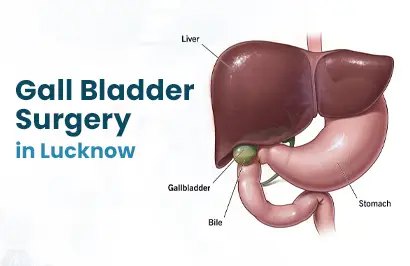Navigating the Journey: Understanding Gallbladder Surgery
The human body is a complex and resilient system, but sometimes, certain organs may encounter issues that require surgical intervention. One such organ that often faces complications is the gallbladder. Gallbladder surgery, also known as cholecystectomy, is a common procedure performed to address various gallbladder-related problems. In this blog, we’ll explore the significance of the gallbladder, common issues leading to surgery, the different types of gallbladder surgery, and what to expect during the recovery process.
The Gallbladder and Its Importance:
The gallbladder is a small organ located beneath the liver, playing a crucial role in the digestive system. Its primary function is to store bile, a digestive fluid produced by the liver, and release it into the small intestine to aid in the digestion and absorption of fats. While the gallbladder is important for digestion, it is not considered an essential organ, and individuals can lead normal lives without it.
Common Issues Leading to Gallbladder Surgery:
Gallbladder problems can arise due to various factors, such as gallstones, inflammation, or infection. Gallstones, hardened deposits in the gallbladder, are a common culprit, causing pain, nausea, and other discomforts. Inflammation of the gallbladder, known as cholecystitis, can occur when bile flow is blocked, leading to severe pain and potential complications.
Types of Gallbladder Surgery:
Laparoscopic Cholecystectomy:
This minimally invasive procedure involves making small incisions in the abdomen through which a laparoscope and specialized instruments are inserted.
Laparoscopic surgery typically results in a shorter recovery time, less scarring, and reduced postoperative pain.
Open Cholecystectomy:
In some cases, an open surgery may be necessary, especially if there are complications or if laparoscopic surgery is not suitable.
This involves a larger incision and may require a longer recovery period.
Recovery and Postoperative Care:
After gallbladder surgery, proper care is essential to ensure a smooth recovery process. Patients may experience mild discomfort, fatigue, and changes in digestion initially. Here are some general tips for postoperative care:
Follow Medical Advice:
Adhering to the surgeon’s instructions regarding medication, diet, and physical activity is crucial for a successful recovery.
Gradual Return to Normal Activities:
Patients are usually encouraged to resume regular activities gradually, avoiding strenuous exercise in the initial weeks.
Dietary Changes:
A temporary adjustment in diet is often recommended to accommodate the absence of the gallbladder and aid in digestion.
Monitoring for Complications:
It’s important to be aware of any signs of infection or complications and promptly report them to the healthcare provider.
Conclusion
Gallbladder surgery is a common and generally safe procedure that brings relief to individuals suffering from gallbladder-related issues. As with any surgery, understanding the process, following medical advice, and maintaining a healthy lifestyle contribute to a smoother recovery. If you’re facing gallbladder problems, consulting with a healthcare professional will help determine the most suitable course of action for your individual case. Remember, informed decisions and proactive postoperative care play pivotal roles in ensuring a successful outcome.
D P Bora Superspeciality Hospital
D P Bora Superspeciality Hospital is a leading healthcare institution specializing in gall bladder surgery. We will emphasize its state-of-the-art facilities, experienced medical staff, and commitment to patient care. D P Bora Superspeciality Hospital stands out due to its highly skilled team of surgeons and advanced technological infrastructure. The hospital’s surgical team and the cutting-edge technologies they employ, ensure safe and successful gall bladder surgeries.


